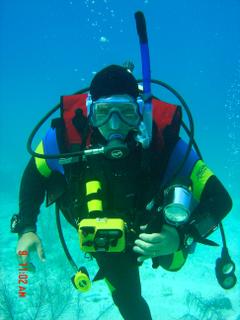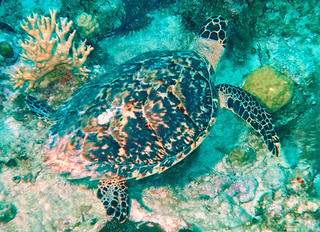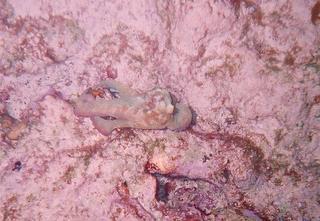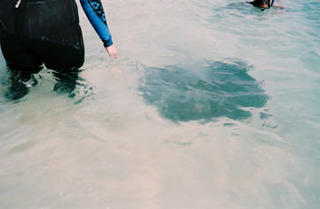Mike Ault's thoughts on various topics, Oracle related and not. Note: I reserve the right to delete comments that are not contributing to the overall theme of the BLOG or are insulting or demeaning to anyone. The posts on this blog are provided “as is” with no warranties and confer no rights. The opinions expressed on this site are mine and mine alone, and do not necessarily represent those of my employer.
Sunday, August 28, 2005
Things to Take on a Tropical Assignment
1. Suntan lotion, SPF45 or so
2. Bug repellent, as strong as you can stand
3. Zip lock bags (large ones!)
4. Patience
5. Diarrhea medicine
6. Sinus medicine
7. Desiccant packs
8. Anti-itch cream
Ok, items 1 and 2 are probably self evident. Item 3 is used for dirty clothes, packing food away from various local bugs, storing things that might leak in a suitcase, etc. However, the most important thing for item 3, zip lock bag, or a resealable, airtight bag, is for transporting your laptop. Usually the offices and hotels will be airconditioned and low humidity. However, as soon as you step outside the heat and humidity smack you like a piece of liver warmed in the microwave, it also smacks your laptop. My Vaio just died, well, actually its power switch did, due to I believe, to excess of humidity.
By placing the laptop into a large, sealable bag with a couple of desiccant packs (those things that look like packages of salt which usually say “Do Not Eat” on them) and then transporting the laptop between office and hotel an untimely demise can be prevented.
Item 4, patience, the heat and the humidity have resulted in the natives taking a rather laid back view where the word rush is unknown. They learn early in life that the person who rushes about tends to get heat stroke. This can take some getting used to. Plan on long lunches and long dinners. If you go expecting things to be like they are where you come from (or rather insisting) you are in for a hard time of it.
Item 5, diarrhea medicine. Even if you take care not to eat fresh (perhaps unwashed or washed in local water) vegetables, not drink the water, not use the water for brushing teeth, etc., you can still get this travelers nightmare, diarrhea. I usually have a bit of a cast iron stomach after traveling as much as I have, but even I get a case once in a while. It is strongly suggested to carry various medicines for gastro-intestinal difficulties just in case that tropical feast you were just dying to try, does you in.
Item 6, sinus medicine. There are pollens in tropical areas that you have never heard of, neither has your doctor. There are molds, fungus and just about all other types of allergens you can imagine. Bring allergy and sinus medicine.
Item 7: desiccant packs. Collect them from the various electronics you buy. Reuse them to keep moisture from delicate circuits. See the section on ziplock bags.
Item 8: No matter how strong your bug repellent is, some will get through. Anti-itch cream (benadril, Hydrocortizone, etc.) can be a real relief when bugs get through.
Don’t get me wrong, I love to travel to the tropics, like to work there and love the people. You just have to take a few precautions to make sure the dream assignment, doesn’t turn into a nightmare.
Mike
Thursday, August 11, 2005
Cursors! Shared Again!
We soon discovered that it wasn't always a good idea to force bind variables for 100% of statements. When a bind variable was what is known as "unsafe", that is, it directly affects the execution plan depending on its value (such as in a range type query, or when an IN list is used) then it wasn't such a good idea to replace the literals in a statement with a bind variable. Luckily, in 9i, or so we thought, they gave us SIMILAR which supposedly would only substitute when the bind variable was "safe". However, this doesn't seem to be the case.
At a recent client site I had the perturbing problem that the shared pool (at over 500 megabytes) was filled to 100%, but only with a little over 1700 SQL objects! For those familiar with shared pools and the amount of SQL they can hold, you will realize this size pool should be able to hold 30,000 or more SQL areas. Looking at the statspack SQL reports, showed some of the SQL areas had as many as 900 versions. In V$SQLAREA, these versions all get showed as one object so typical monitoring using counts of the SQL areas in V$SQLAREA didn't show this issue.
Further investigation using the V$SQL_SHARED_CURSOR view showed that in the case of one SQL with over 700 versions, only 7 showed any indication that they shouldn't be shared. We attempted to reconcile this using:
"_sqlexec_progression_cost=0"
"session_shared_cursors=150"
and based on some metalink research, setting event "10503 trace name context forever, level 128" which was suposed to correct some issues when character, raw, long raw and long values where replaced with bind variables. We bounced the database and found absolutely no difference. Using a search on v$sql_shared_cursor (searchs against various forms of "high number of SQL versions" proved fruitless) found bug report 3406977.8 which talked about a bug, 3406977, which affects versions 9.2.0.2 through 9.2.0.5 and is fixed in 9.2.0.6 that causes statements like "select * from test where id in (1,2,3);" and "select * from test where id in (2,2,3);" to be made into multiple versions if CURSOR_SHARING is set to FORCE or SIMILAR!
Luckily there is a back port for 9.2.0.5 for both platforms (AIX 5L and Solaris 64 Bit) at the client site that we can apply that (crossing my virtual fingers) will fix the issue. Some of the effects of this also cause high CPU usage (CPU Usage showing as a major amount of the response time, with the result of CPU usage - (CPU recursive + CPU Parse) being a major fraction, in our case CPU Recursive and the result of the equation (known as CPU Other) where both near 50% of the total CPU Usage with CPU parse being at 2%. This large value for the CPU other calculation points at the multi-versioning as being a possible issue. I will keep you all posted on the results of the patch.
Saturday, August 06, 2005
Hard at Work in Paradise

Well, here in paradise we are working hard. Between the lessons and tuning we also squeeze in a bit of recreation. Lucky for me I am a diver and believe me here there is no shortage of prime diving.
Here I am on a recent dive as you can see, I also do underwater photography.
Of course working hard, I generally only get to do night dives. They are a pleasure unto themslves. The night dive wraps you in a world of darkness with only your dive light, and those of your buddies, to reveal the wonders around you.
Of course Don is asking for us to work as much as possible, so after a bit of a search I found the following:
http://wetpc.com.au/html/technology/wearable.htm
And now I fear that Don may have us tuning databases at 100 feet down while diving! I tried to explain that you need to concentrate on diving when you dive, but I fear a wearable dive capable computer is probably in my future.
Anyway, until that happens I get to do normal diving and will be able to enjoy working in paradise as well as dive there when I get the chance.
Here is a sea turtle I recently photographed on one of my day dives. They are all over here in paradise and it is rare not to see one on a dive.
Also to be seen are eels, many breeds of sharks, and all the tropical fish you could ask for. Of course on night dives you get to see the exotic creatures such as the numerous types of squid, shrimp and of course, the king of the night underwater, the octopus.
The octopus are fascinating creatures able to change color and so flexible they can easily squeeze into crevices you would feel certain couldn't contain them. You can generally find them by looking for coral heads that have fish waiting around them, the other fish let the octopus scare out the small fish they desire to consume.

In the shallows here the sting rays are used to being hand fed and as soon as you start to wade they literally come up and eat right out of your hand. Of course be sure to keep you fingers together as they can't see what they are eating as their eyes are on the top of their bodies and their mouths are on the bottom. They suck up the food given like an ocean going vacuum cleaner. Like I said, it isn't but a few minutes after you start wading until these kittens of the deep come zooming in looking for handouts. I call them kittens of the deep because they tend to rub up against your legs just like a kitten as they try to get your attention so you will feed them.
Well, got to get to bed after a hard day of ...working.

We know this is going to lead to many more assignments in this area of the world, believe me, I really look forward to it...even if I do start tuning databases at 100 feet down....
From somewhere warm and tropical...
Mike
